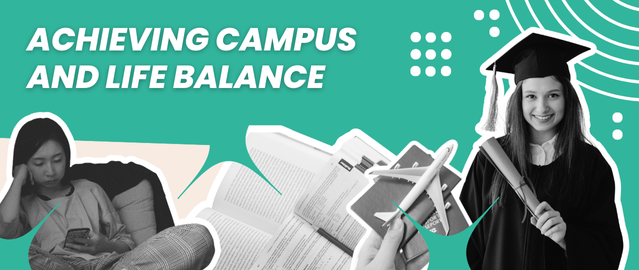Achieving Campus and Life Balance
In the fast-paced world of academia, where students juggle lectures, assignments, and extracurricular activities, achieving a balance between campus life and personal well-being can be a daunting task. However, this equilibrium is crucial not only for academic success but also for long-term mental and emotional health. As students navigate through their college years, learning how to manage their time effectively and prioritize their well-being can set the foundation for a successful and fulfilling life.
The Importance of Balance
The concept of balance is not just about dividing time equally between studies and leisure but about managing one’s responsibilities in a way that promotes overall well-being. For students, this means understanding the importance of academic commitments while also recognizing the need for rest, social interactions, and personal growth. Achieving this balance helps in reducing stress, preventing burnout, and fostering a positive outlook towards both academic and personal life.
Strategies for Achieving Balance
- Time Management: One of the most critical aspects of balancing campus and life is effective time management. Students should create a schedule that allocates specific times for studying, attending classes, and participating in extracurricular activities. Utilizing tools such as planners or digital calendars can help in keeping track of deadlines and commitments, ensuring that no aspect of their life is neglected.
- Prioritization: Not all tasks are created equal. Learning to prioritize tasks based on their importance and urgency can help students manage their workload more efficiently. Techniques such as the Eisenhower Matrix, which categorizes tasks into four quadrants based on urgency and importance, can be particularly useful in this regard.
- Setting Boundaries: It’s essential for students to set boundaries between their academic responsibilities and personal life. This could mean designating specific times for studying and others for relaxation or social activities. Setting these boundaries helps in creating a clear distinction between work and leisure, allowing students to fully engage in each without feeling overwhelmed.
- Self-care: Physical and mental well-being are paramount. Students should incorporate self-care practices into their daily routine, such as regular exercise, adequate sleep, and healthy eating habits. Engaging in activities that promote relaxation and mental well-being, such as meditation, hobbies, or spending time with loved ones, can also contribute significantly to maintaining balance.
- Seeking Support: College life can be challenging, and it’s important for students to know when to seek help. Universities often provide resources such as counseling services, academic advisors, and peer support groups. Utilizing these resources can provide students with the necessary support to navigate their challenges and maintain their well-being.
The Role of Institutions
Educational institutions play a crucial role in promoting balance among their students. Universities can foster a supportive environment by providing resources that address both academic and personal needs. This includes offering mental health services, promoting extracurricular activities that encourage social interaction, and creating flexible academic schedules that allow students to manage their time effectively.
Moreover, institutions can implement policies that prioritize student well-being, such as mental health days, stress-relief programs during exam periods, and workshops on time management and self-care. By actively promoting a culture of balance, universities can help students develop the skills needed to manage their responsibilities effectively and maintain their well-being.
Conclusion : Balance Between Campus and Life
Achieving a balance between campus and life is a continuous process that requires effort and commitment. By adopting effective time management strategies, setting boundaries, prioritizing self-care, and seeking support when needed, students can create a harmonious blend of academic and personal life. Educational institutions also have a pivotal role in fostering this balance by providing the necessary resources and support. Ultimately, mastering the art of balance not only enhances academic performance but also contributes to long-term happiness and success.


